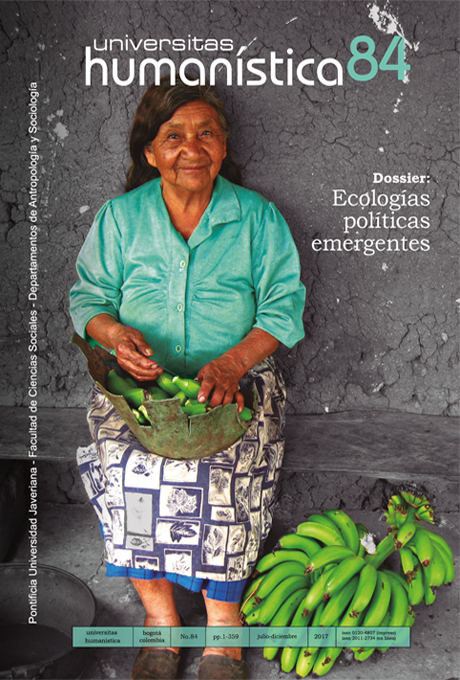Abstract
This paper intends to illustrate some of the effects that derive from the presence of national and international companies engaged in the extraction of raw materials and agroindustry work on the internal political relationships of an indigenous territory, based on the results of the ethnographic fieldwork conducted in the Wacoyo reserve. The presence of these companies has had significant impacts on the internal political dynamics of indigenous peoples living in the municipality, weakening and fragmenting communities and their governments. Particularly, this paper exposes how these resources have become the new economic base that feeds clientelistic networks in indigenous communities, and how it causes political tension and disputes between indigenous comuneros and leaders. It begins by describing how a new development model was imposed in the region, and later explains how clientelistic networks work in regions and communities.

This journal provides immediate open access to its content on the principle that making research freely available to the public, encourages greater global exchange of knowledge.
The journal Universitas Humanística is registered under a Creative Commons Attribution 4.0 International Public License. Thus, this work may be reproduced, distributed, and publicly shared in digital format, as long as the names of the authors and Pontificia Universidad Javeriana are acknowledged. Others are allowed to quote, adapt, transform, auto-archive, republish, and create based on this material, for any purpose (even commercial ones), provided the authorship is duly acknowledged, a link to the original work is provided, and it is specified if changes have been made. Pontificia Universidad Javeriana does not hold the rights of published works and the authors are solely responsible for the contents of their works; they keep the moral, intellectual, privacy, and publicity rights.
Approving the intervention of the work (review, copy-editing, translation, layout) and the following outreach, are granted through an use license and not through an assignment of rights. This means the journal and Pontificia Universidad Javeriana cannot be held responsible for any ethical malpractice by the authors. As a consequence of the protection granted by the use license, the journal is not required to publish recantations or modify information already published, unless the errata stems from the editorial management process. Publishing contents in this journal does not generate royalties for contributors.


